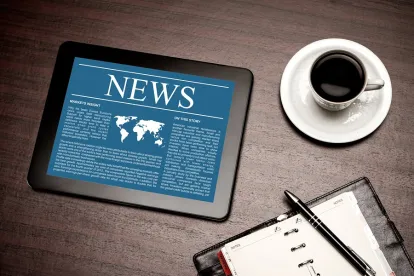The European Court of Justice (ECJ) issued a landmark decision on Dec. 19, 2019, that effectively restricts the resale of legally purchased e-books. The case involved the Dutch company Tom Kabinet and the Dutch Publishers Society (Nederlands Uitgeversverbond)1. Tom Kabinet offered second hand e-books for sale through a “Book Club.” The e-books were either purchased by Tom Kabinet or donated by members of the club. Members who donated e-books provided a download link together with a statement that the donor had not previously made a copy of the e-book.
In preliminary questions to the ECJ, the District Court of The Hague asked whether the first sale of the e-book “exhausted” the rights of the copyright owner within the meaning of Article 4 of the Copyright Directive, or, alternatively whether the use of a download link to effect the sale had made the work available to the public within the meaning of Article 3 of the Copyright Directive, thus precluding any exhaustion of rights.
Article 4 of the Copyright Directive provides for exhaustion of the rights of the copyright owner when the first sale of the original or copies is made by or with the consent of the owner. If the resales were deemed to have been made under Article 4, no further owner consent would be required. By contrast, Article 3 of the Copyright Directive provides for the exclusive right for authors to authorize making works available to the public. These rights cannot be exhausted.
The ECJ ruled that resale to the public by downloading an e-book, for permanent use, is covered by the concept of ‘communication to the public’ and, more specifically, by that of ‘making available to the public of [authors’] works’ within the meaning of Article 3 of the Copyright Directive. Accordingly, author consent was required for the resale at issue in Tom Kabinet.
This decision is noteworthy because the ECJ had ruled in 2012 in the Oracle/UsedSoft2 case that the right of distribution of a copy of a computer program is exhausted where the downloading of a computer program from the internet was authorized by the copyright owner. In that case Oracle distributed a computer program with a license to use the program for an unlimited period of time. UsedSoft offered existing “used” licenses for sale. Customers who bought an already-used license from UsedSoft downloaded a copy of the computer program from Oracle’s website. The ECJ ruled that this practice was permissible because Oracle’s rights had already been exhausted. This had raised the question of whether the same principle should also apply to music, movies, or e-books.
The ECJ’s Tom Kabinet judgment reached a different result, finding that the downloading of a permanent copy of an e-book is deemed to be a ‘making available to the public’; as such, exhaustion is not possible. This decision may also have important ramifications for the music and film industries, since the ECJ’s reasoning indicates that the resale of a download link to a permanent copy of a music or video file would also require the consent of the rights holders.
2 European Court of Justice, 3 July 2012, C-128/11, ECLI:EU:C:2012:407 (Oracle / UsedSoft)



 />i
/>i
